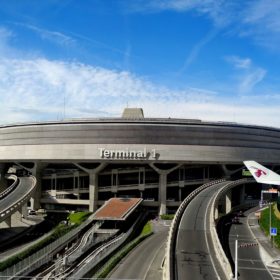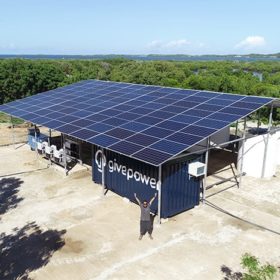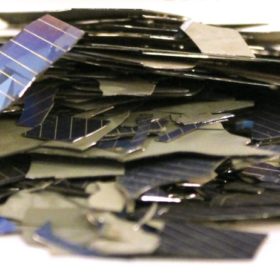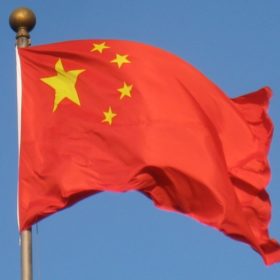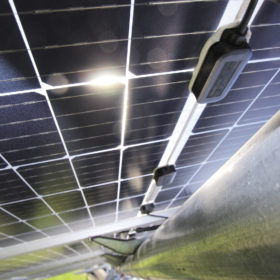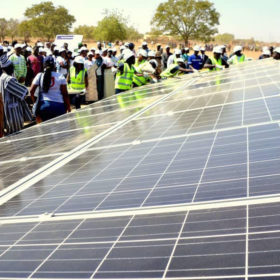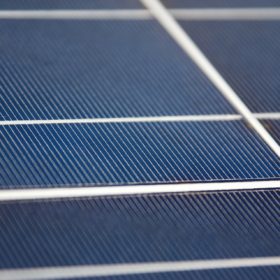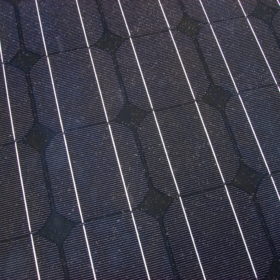21-year solar PPA for three French airports
The airports of Paris-Charles-de-Gaulle, Orly and Le Bourget will be provided with solar power by French solar company Urbasolar and energy provider GazelEnergie. The PV plants related to the contract are now in development and will begin delivering power in 2021.
A new solar desalination system to address water scarcity
The GivePower non-profit founded by Tesla subsidiary SolarCity is supplying solar-powered desalination systems to some of the world’s neediest communities, backed by Tesla’s Powerwall battery technology.
Italian PV panels sent for recycling were instead smuggled to Syria and Africa
Illegally re-badged panels were sold on to Senegal, Burkina Faso, Nigeria, Morocco, Mauritania, Turkey and even Syria. Italian authorities found 60 tons of panels which will be examined.
Dutch grid operator expects up to 34 GW of solar by 2030
Under Tennet’s most optimistic outlook, solar generation capacity could more than double the volume of wind farms by the end of the decade, provided the Netherlands goes above and beyond Paris Agreement climate change requirements.
Coronavirus to have limited impact on Chinese polysilicon industry
Analyst Johannes Bernreuter says most of China’s polysilicon production capacity is in regions away from the center of the coronavirus outbreak. He added, however, 27% of the nation’s 510,000-ton annual polysilicon capacity could be affected.
Nextracker unveils new software for solar park monitoring
The U.S. tracker provider has launched NX Navigator, a control system it says offers improved monitoring across a range of weather conditions. The company claims the software enables PV plant operators to schedule maintenance operations such as cleaning and mowing.
Work begins on 30 MW solar plant in Burkina Faso
Electricity generated by the facility will be sold at $0.08/kWh to national utility Sonabel. Burkina Faso recently adopted a solar-oriented energy policy.
Pakistan Post wants solar
The postal operator, which is present in 12,000 locations nationwide, wants PV facilities to power its operations. Bidders have until February 20 to deliver on a call for expressions of interest and pre-qualify for the tender.
Coronavirus could cause solar panel price spike
The coronavirus outbreak in China could raise solar module prices in the near term as manufacturers have already begun experiencing wafer and solar glass shortages. Production rates are also being affected by an extended new year holiday introduced by the authorities as a measure to deal with the virus, and the requirement workers from infected areas quarantine themselves for two weeks.
Predicting solar power generation with ‘deep photovoltaic nowcasting’
The ‘deep photovoltaic nowcasting’ project developed by Chile’s Institute of Engineering Sciences of the University of O’Higgins, Canada’s Laval University and Japan’s Kyoto University, seeks to make short-term, high-resolution projections of solar energy generation.
